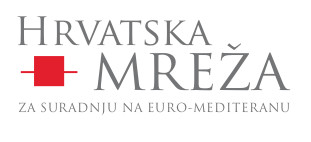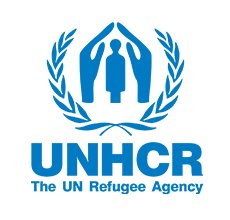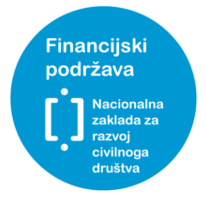"Optimizing volunteer services in times of refugee crisis" - results and recommendations
- Detalji
- Pregleda: 2024
As a part of the project "Optimizing volunteer services in times of refugee crisis" (PREVENT), funded under the Programme "Europe for citizens, partners from six countries have drafted recommendations for improving the practice of volunteering in times of refugee crisis. Project coordinator was Association "MI" (Croatia).
The project "Optimizing volunteer services in times of refugee crisis" was implemented by Association "MI" (Croatia) in partnership with Novi Sad Humanitarian Centre (Serbia), Legis Skopje (Macedonia), Voluntary Action Sheffield (UK), Önkéntes Központ Alapítvány (Hungary), Croatian Network of Volunteer Centres (Croatia) and European Volunteer Centre (Belgium). The project was funded under the Programme "Europe for Citizens†(Strand 2: Democratic engagement and civic participation) and it lasted from September 2016 until November 2017. The aim of the project was to contribute to strengthening the role of volunteers during times of crisis in modern Europe and to provide evidence-based recommendations that would lead to the improvement of volunteer services at EU level.
Throughout the project, we organized three international and four national events involving 444 people from 28 European and Asian countries, while indirectly involving around 400,000 people. In January 2017 in Osijek (Croatia), we organized a workshop to exchange the experiences. In March 2017 in Novi Sad (Serbia), teams of experts from partner organizations have drafted recommendations for improving the volunteering practice. All the partner organizations, on the basis of all the findings, discussed these topics further with their stakeholders in Sheffield (UK), Budapest (Hungary), Belgrade (Serbia) and in Zagreb (Croatia). The final event was held in Vienna in October 2017 and it was organized by the European Volunteer Centre (CEV). The purpose of these events was to collect, share and discuss experiences in involving volunteers in refugee support. We discussed this subject in more detail with about 600 participants at similar gatherings in London, Berlin, Zadar, Osijek and Zagreb as well as between partner organizations through the webinars. For more information on events held throughout the project, click here.
Previously, we also collected information through the analysis of social networks and relevant websites from 17 European countries that were on refugee routes, and through a specially designed Volontheka questionnaire we directly examined the satisfaction of refugees, migrants and volunteers with the general condition as well as with volunteer services in refugee camps and reception centres. Collecting impressions was particularly demanding because of the susceptibility of the interviewee, the issue of security and trauma. Volunteer questionnaire was completed by a total of 71 volunteers in Croatia, Serbia, the UK, Hungary and Macedonia, and 126 refugees and migrants from Syria, Iraq, Afghanistan, Morocco, Tunisia, Algeria, Ethiopia and Libya.
Recommendations for improving volunteer services
Based on the collected knowledge, teams of experts from partner organizations and their associates have developed detailed recommendations for improving volunteering services in dealing with refugees and during the crisis. Improving conditions for crisis volunteering as well as conditions for volunteering with refugees as a particularly vulnerable group of people is a big venture with many open questions and no quick answers. The need for additional resources, additional resources and political will to improve the lives of refugees will open up many more questions, but it is unlikely that major changes in these areas will occur on international and national levels. Key recommendations therefore, primarily but not exclusively, focus on actions that can be taken without additional funding, and they are:
- Improve co-operation and co-ordination between decision makers at the international and national level.
The reactions of international and national policies have turned the migration of refugees into an international humanitarian crisis. Campaigning, lobbying and collaboration can improve this.
- Improve co-operation and co-ordination between governmental and non-governmental organizations.
Skills, time and motivation of non-governmental organizations and volunteers are often not used enough or not used at all, due to poor communication or unclear division of work between non-governmental organizations and government organizations in the field. Improvements to this plan can avoid futile efforts and significantly improve services for refugees.
- Identify the values ​​and skills of volunteers and the dedicated (secured) means for safe inclusion, training and co-ordination of volunteers.
It is very important to devote serious attention to the organization of volunteer work in times of crisis and to ensure fast adaptation, taking into account recommendations directly from the field:
- Quality volunteer training (orientation, safety instructions, information on cultural differences etc.) is required.
- Adequate training of volunteer co-ordinators in the field is required to cope with all the challenges they may encounter.
- There is a need to work on preventing burn-out syndrome due to high pressure on volunteers, coordinators and others involved.
- Professional psychological support and frequent supervisory meetings with coordinators and volunteers need to be provided.
- Identify the abilities of refugees and enable them to provide services and support.
"Refugee" is a temporary status rather than a permanent identity. Refugees often know their needs and how to satisfy them. Activities should be done together with them and enable them to be involved in the community, e.g. through volunteer activities, where they can directly assist.
- Identify the value and energy that "spontaneous" volunteers bring and identify ways of co-operation
Spontaneous community action enriches the community and encourages individuals to change. However, there is often tension among these volunteers and non-governmental organizations. That is why we believe that recognition, cooperation and support are necessary.
Impact of the project
In the countries on refugee routes the project has attracted the public's interest in accessing the topic responsibly and realistically, which was often in contrast to the overriding critical views in public discourse. In the United Kingdom and Belgium, countries that often fall into the desirable refugee destinations, partner organizations have attracted additional stakeholder interest and incited discussions on the topics of refugee care and volunteer involvement.
Through the work of the European Volunteer Centre (CEV), positive practices have been further promoted, shared and made available to volunteer organizers and volunteers throughout the EU.
The infrastructure of volunteering in the refugee crisis and integration processes has been further strengthened, which will contribute to better quality support and greater benefits to the people under protection. Volunteering with refugees is also an important way for civil participation in crises. It increases the capacity of communities and societies to take responsibility and respond to urgent and new needs.
The partner organizations that were involved in the project are continuously acting as support centres, as part of the volunteer infrastructure, and will continue their efforts in that direction. Developed partnerships enable further development and broader involvement.



 Udruga "MI" - Split je dugogodišnji implementing partner
Udruga "MI" - Split je dugogodišnji implementing partner  Udruga "MI" - Split je partner
Udruga "MI" - Split je partner